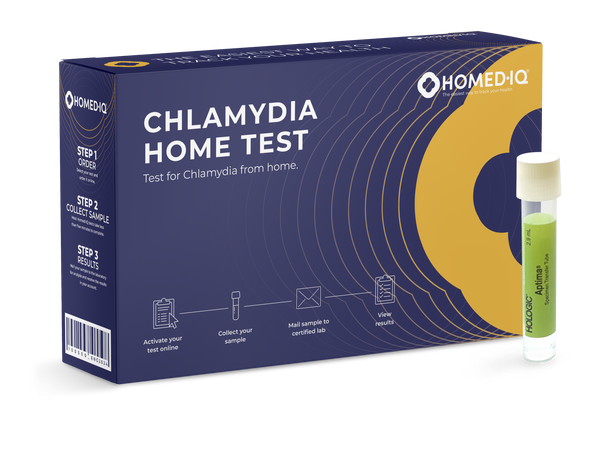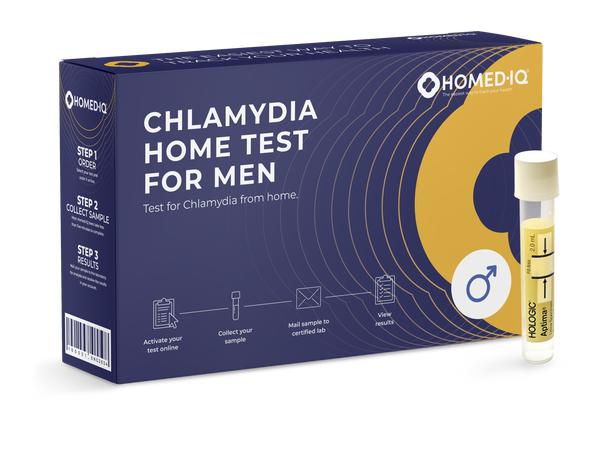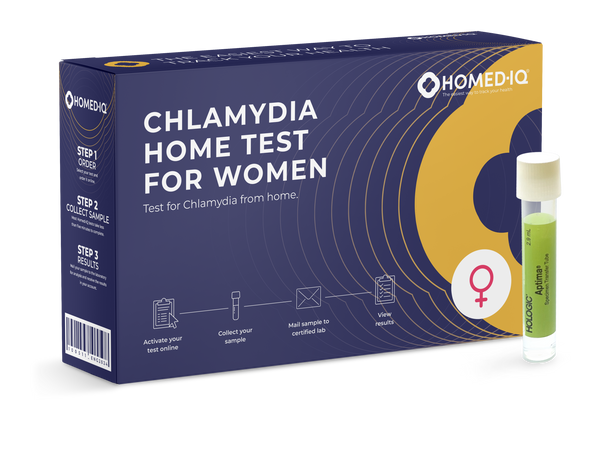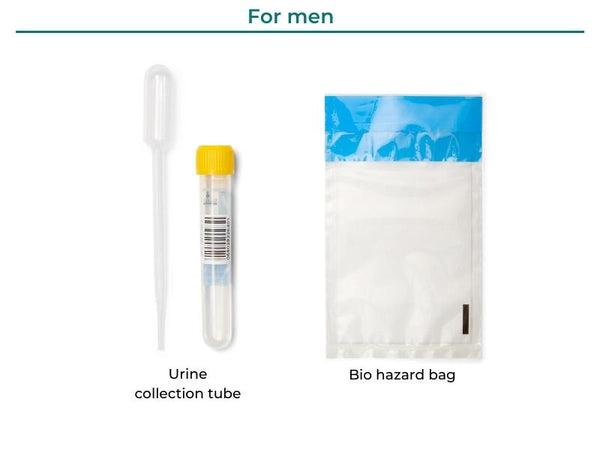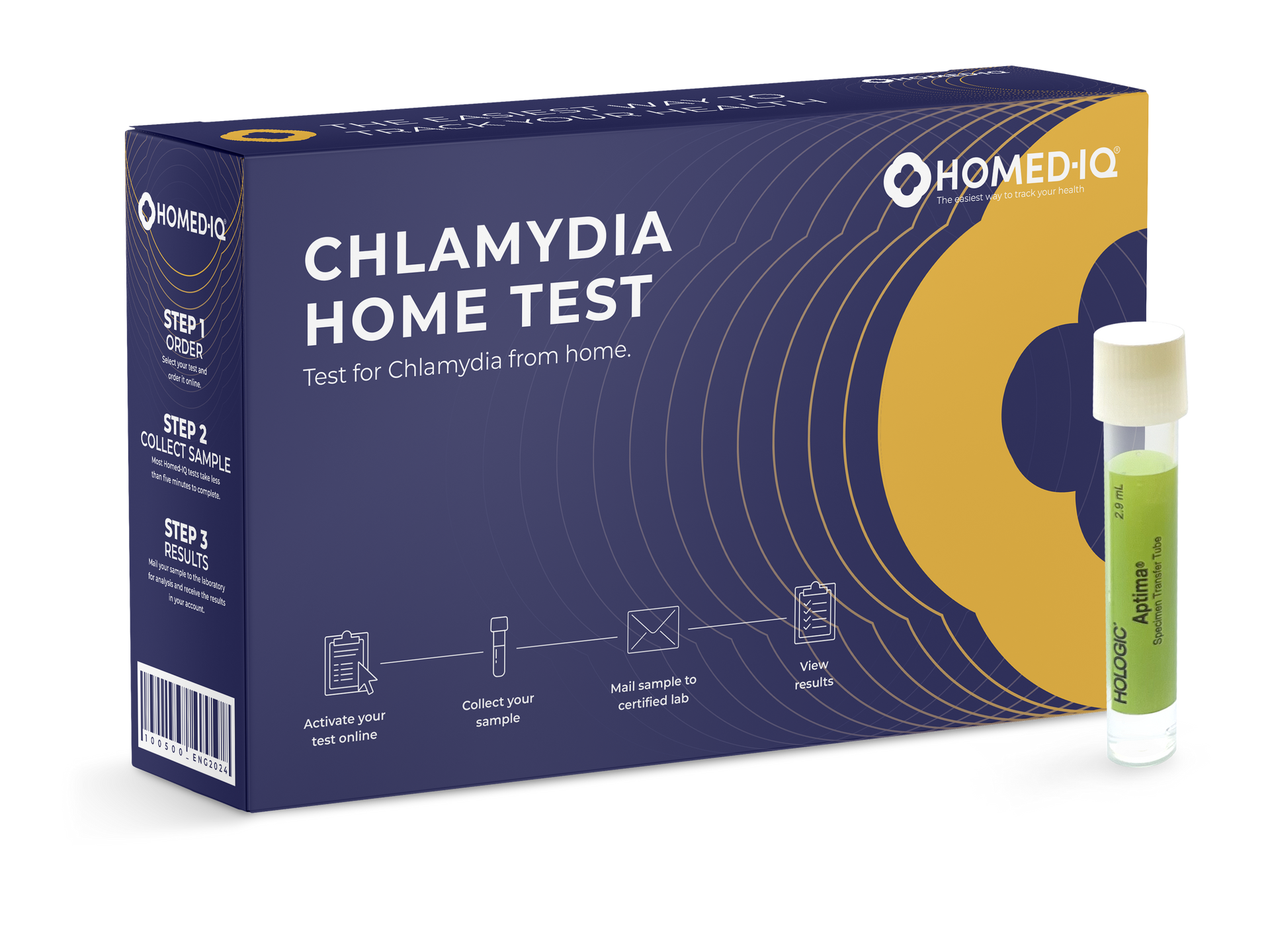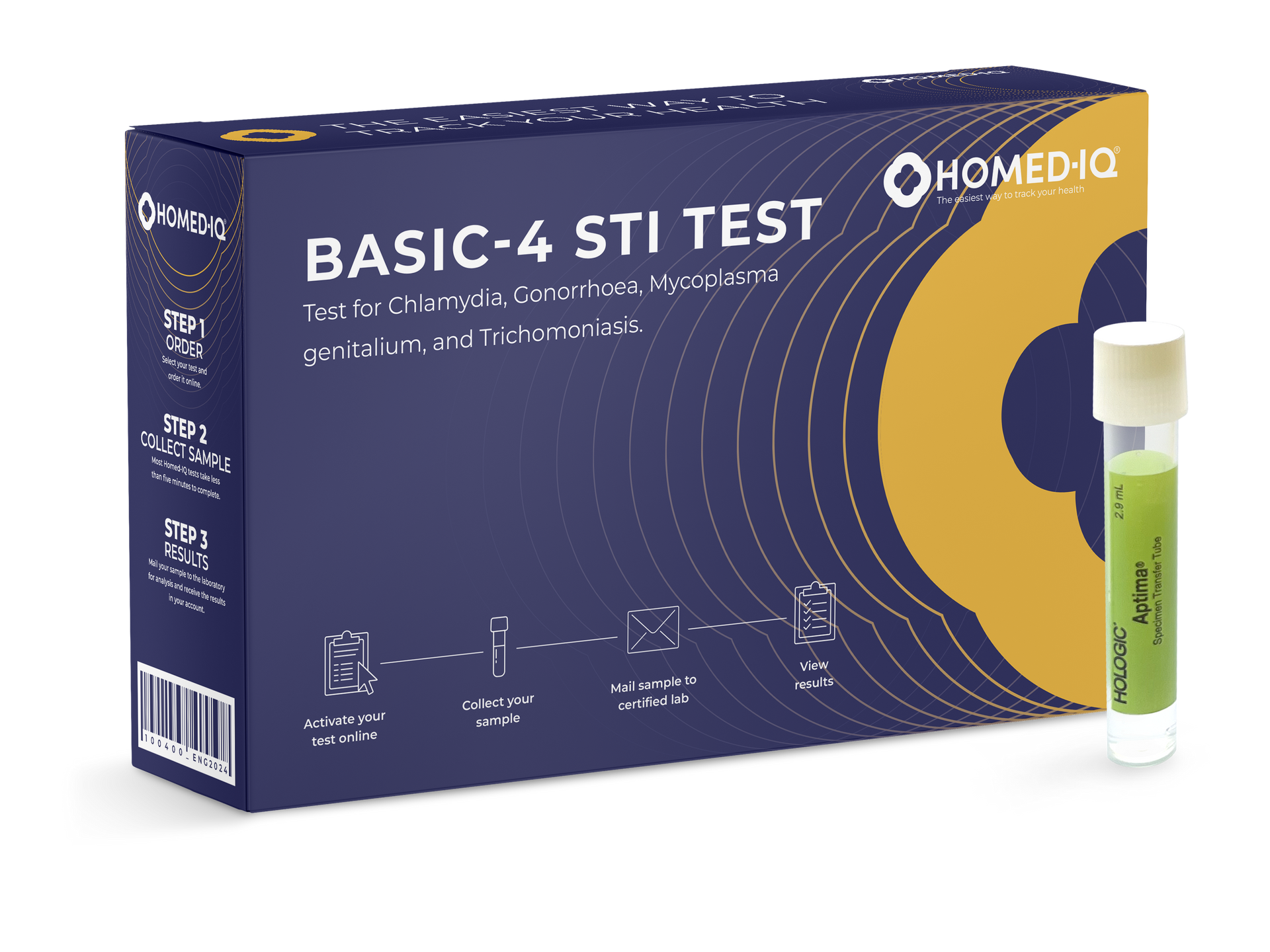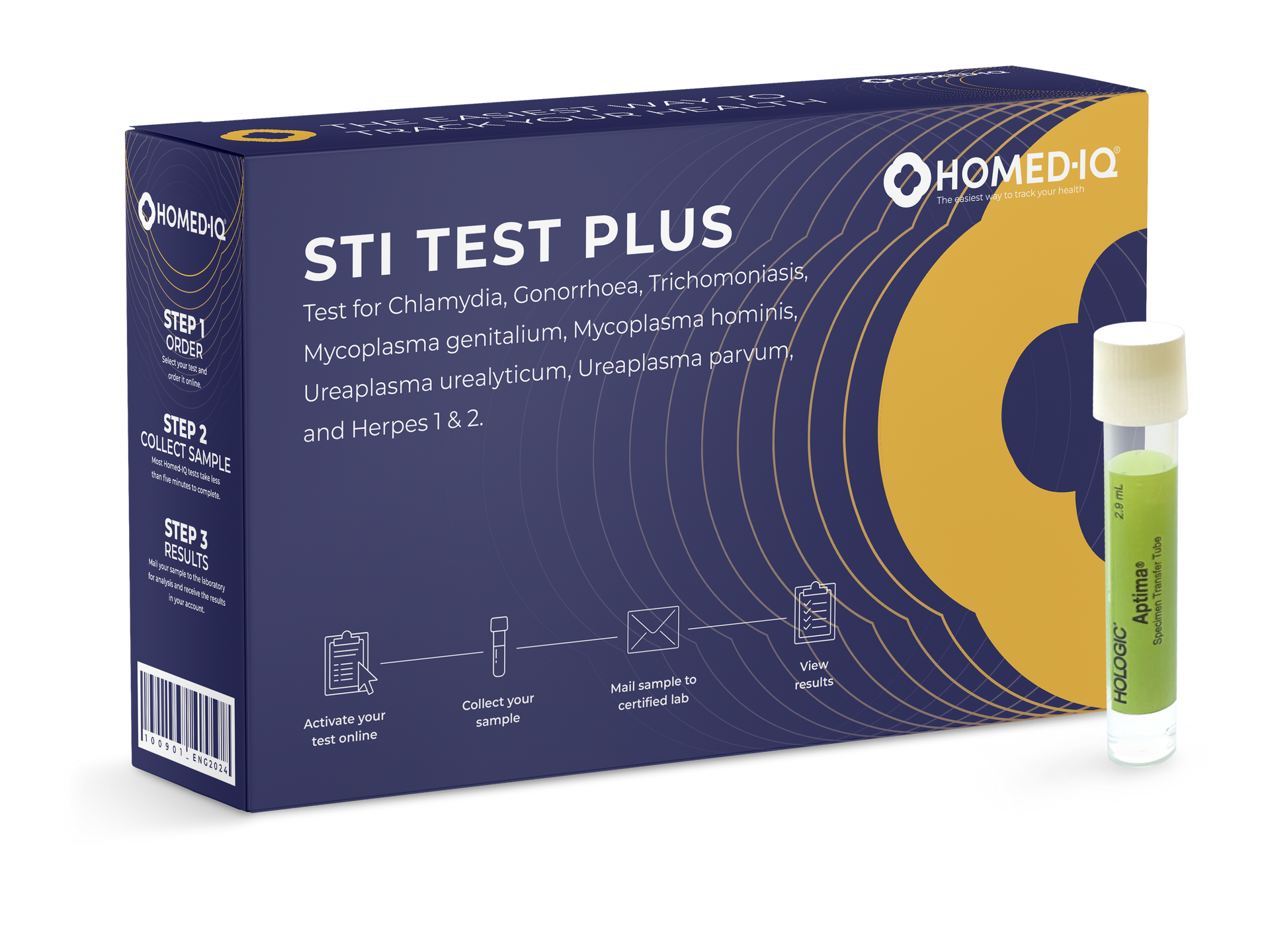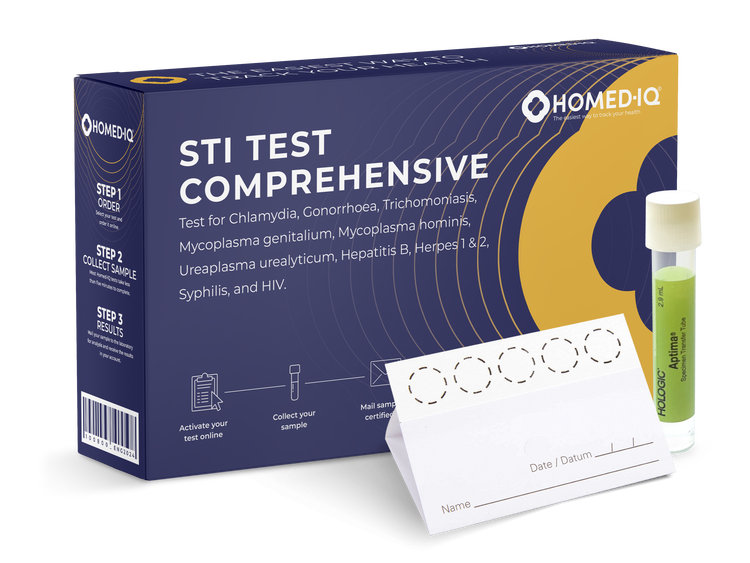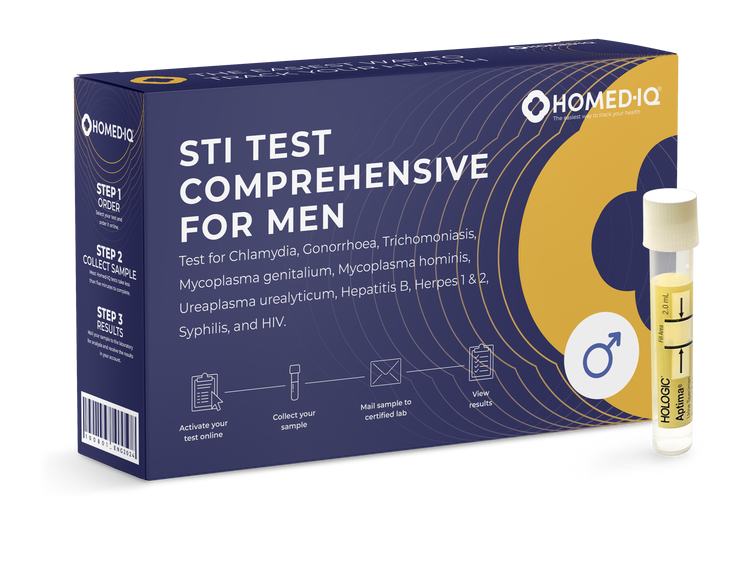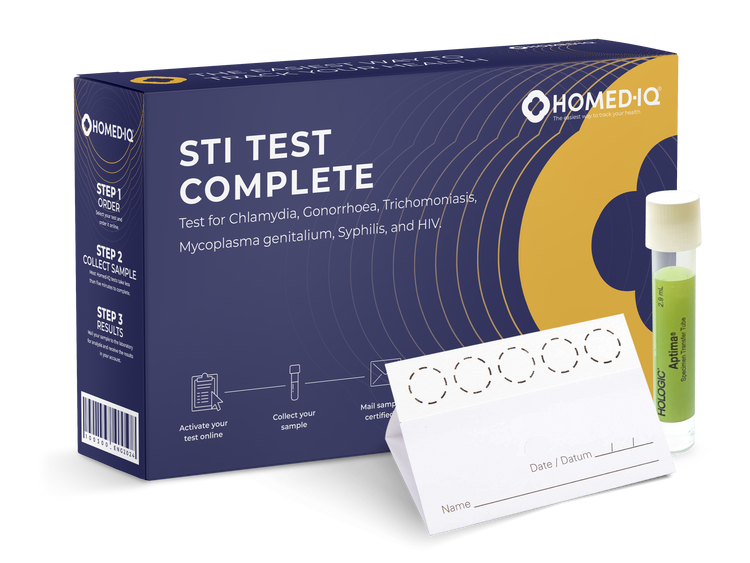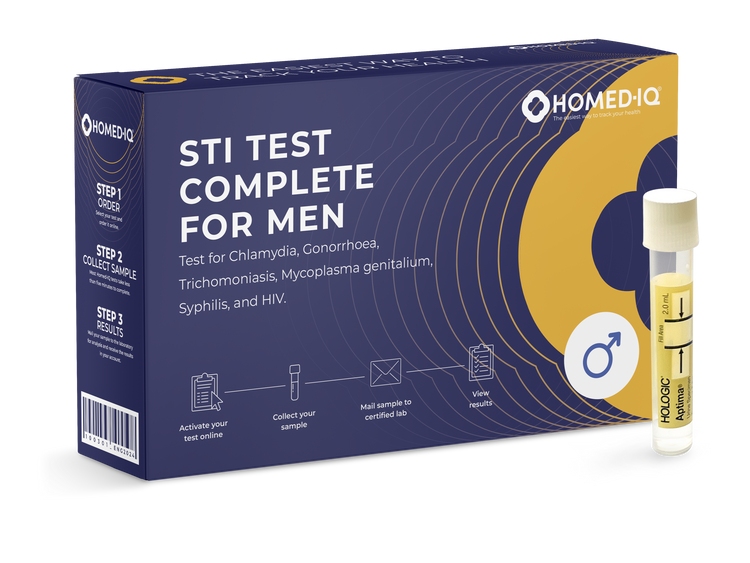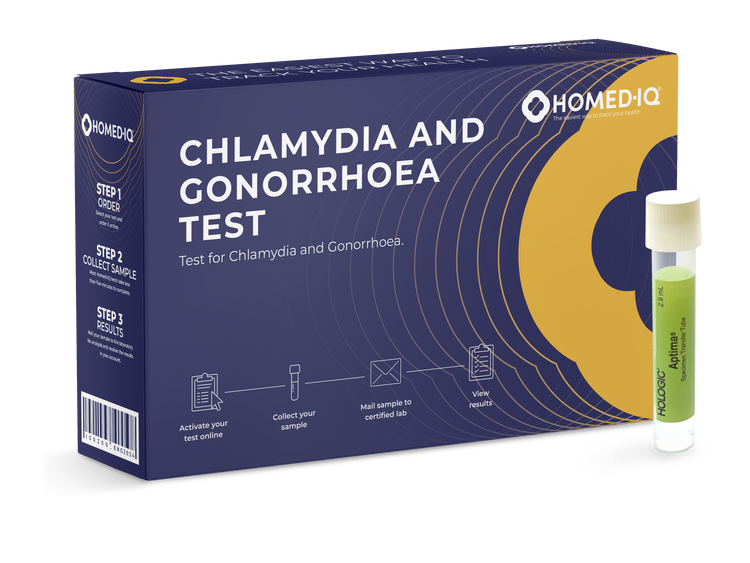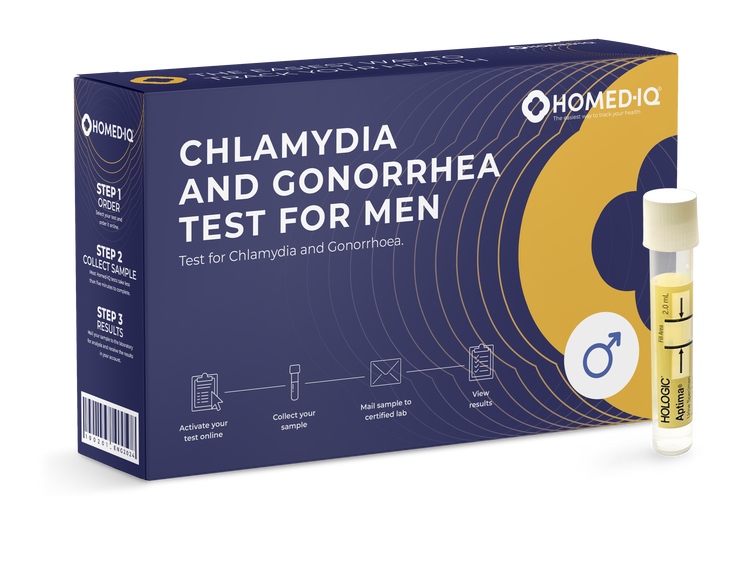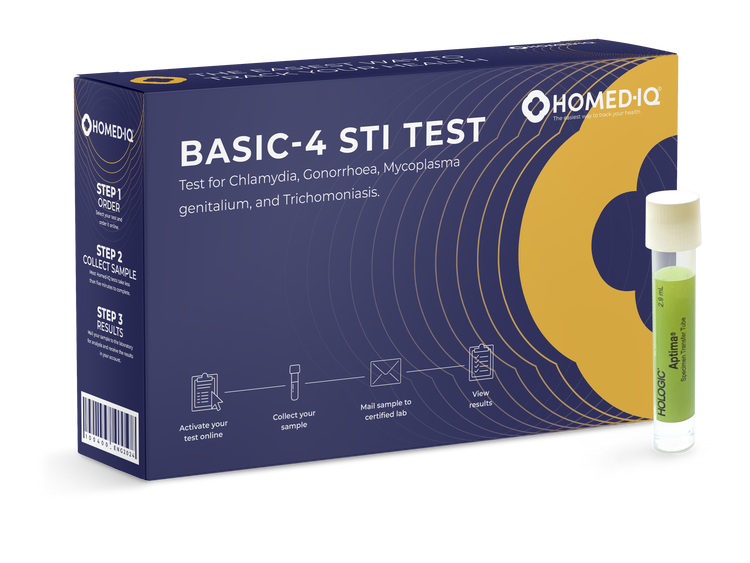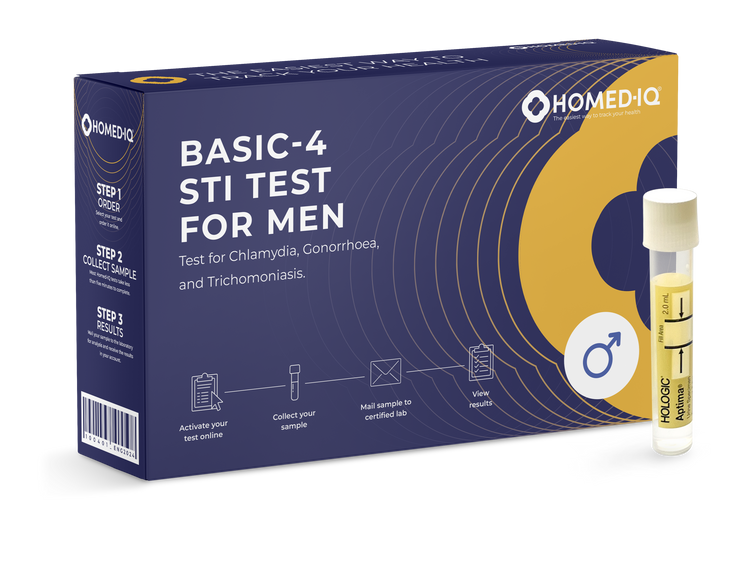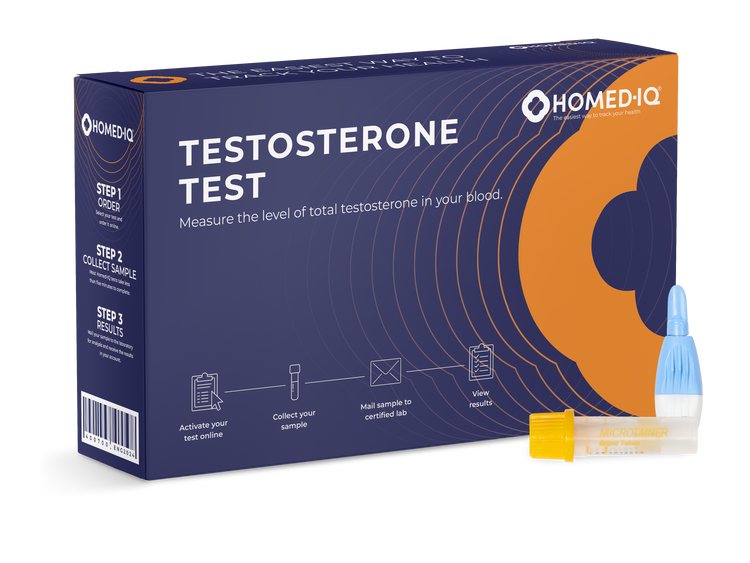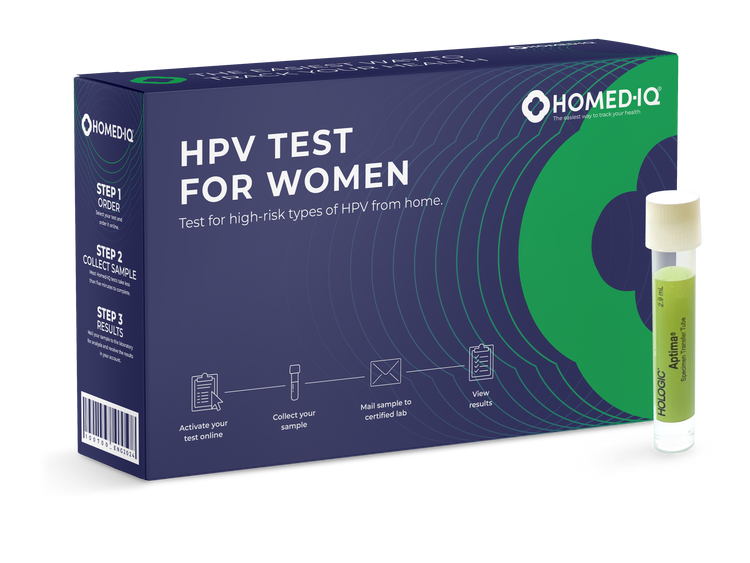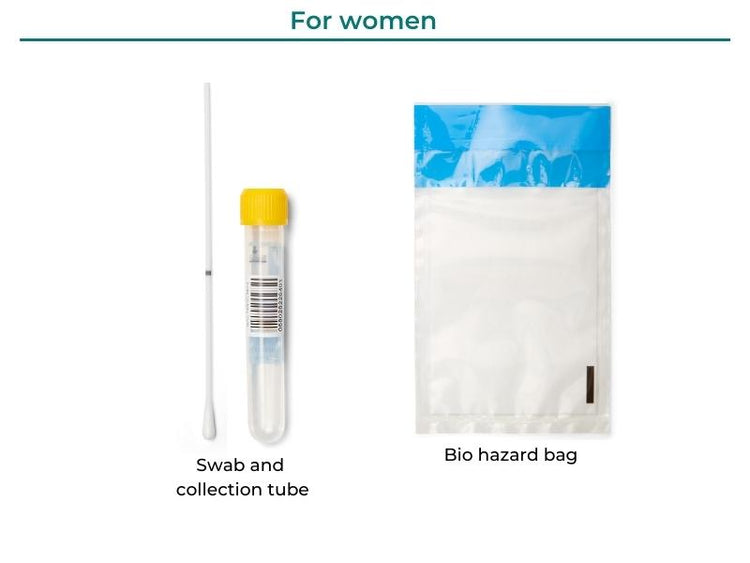Chlamydia Home Test
FREE SHIPPING
Chlamydia is one of the most common STIs worldwide. Oftentimes, chlamydia infections don’t cause any noticeable symptoms, making it possible to be infected without knowing it. Homed-IQ’s Chlamydia Test is a certified laboratory test that you can do easily and anonymously from home. The test is delivered in discreet packaging and is entirely confidential.
Test mode:
For men: a urine test
For women: a vaginal swab test
Window Period:
The window period is the time between when you were infected with an STI and when it is detectable with a test. See the ‘About this test’ section or the blog ‘When can you be tested for STIs?‘ for more information about when you can reliably test for each STI.
- €45,00 - Men
- €45,00 - Women
FAQs
How can I avoid getting an STI?
Who is this home STI test not suitable for?
How often should I be tested for STIs?
Is this test really anonymous?
I would like to test the throat or anal area for STIs. How can I do that?
How accurate is this STI test?
What are the advantages of this test?
Has this STI test been reviewed by doctors?
Will my health insurer reimburse this test?
Is this STI home test an alternative to a doctor's examination?
Why should I choose a laboratory STI test and not a rapid test?
How do I get treatment if I test positive?
Why do I need to activate my test kit?
I have tested positive for an STI. How do I warn my partner?
How does it work?
-
![Woman in professional cozy kitchen with Homed-IQ test kit]() 1
1Order your test
Fast and discrete letterbox delivery
-
![]() 2
2Activate & take your sample
Video instructions included
-
![]() 3
3Laboratory analysis
ISO - Certified lab network
-
![]() 4
4Receive your results
Easy access through mobile
